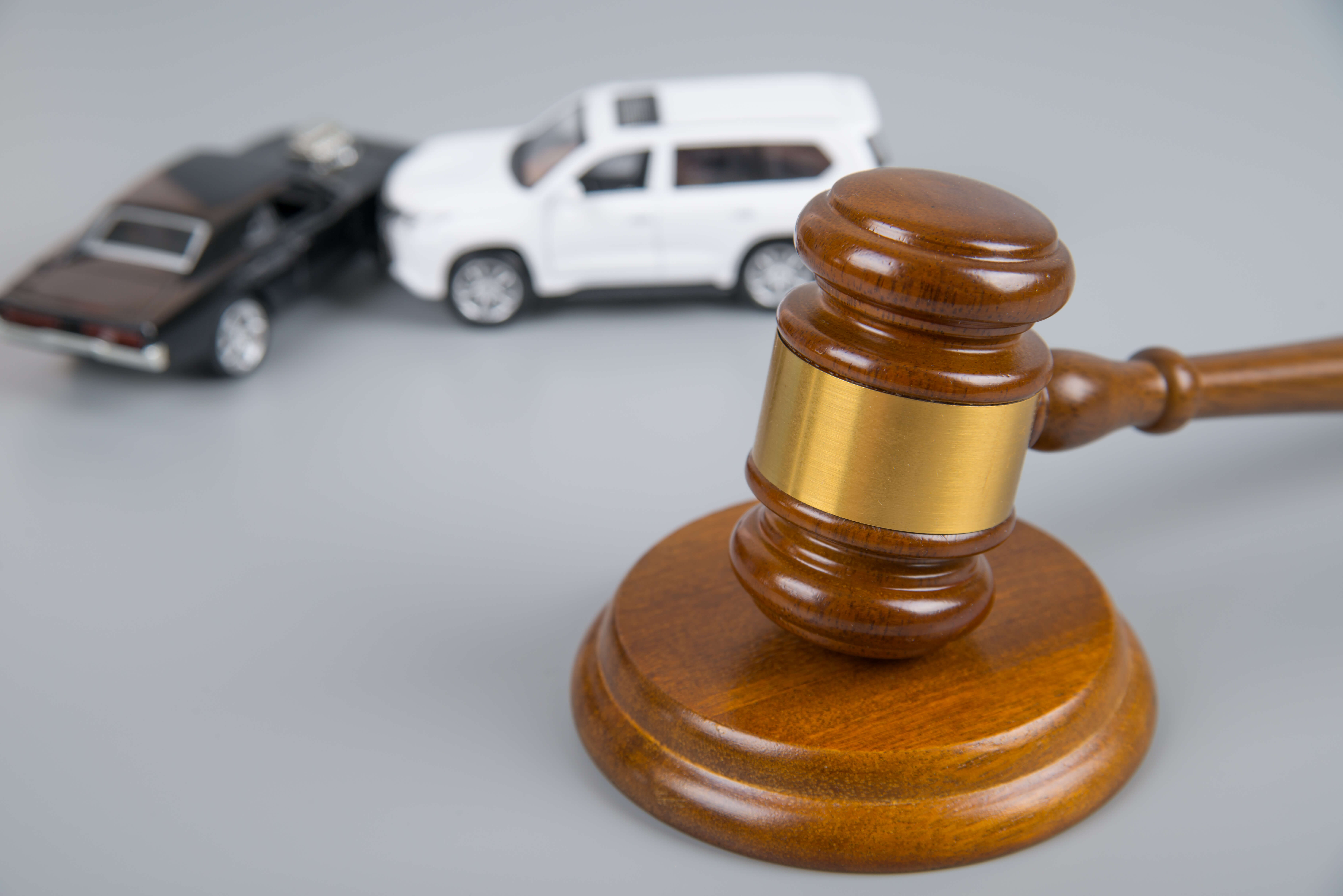Car accident cases do not always end up in court. In fact, insurance settlements or alternative dispute resolution methods resolve most car accident claims rather than full trials.
After an accident, most injured parties file claims with their own or the at-fault driver’s insurance company to cover medical bills, lost earnings, and property damage. Insurance companies often prefer to settle claims quickly to avoid litigation’s cost, time, and uncertainty, which means they resolve many without ever reaching a courtroom.
However, some car accident cases proceed to court, typically when there is a dispute over liability, the extent of injuries, or the adequacy of the insurance settlement.
Serious injuries, permanent disability, or damages exceeding policy limits are common reasons victims may file a lawsuit.
Even when a case goes to court, it does not automatically mean a trial; pre-trial negotiations, mediation, or motions can often resolve disputes before involving a judge or jury.
Understanding that court is not always the final step helps accident victims approach the claims process strategically, knowing when legal action may be necessary to secure fair compensation.
An experienced attorney can guide you through the legal process and negotiate with the insurance companies. They can advocate for your best interests and ensure you receive the compensation you deserve for your injuries and damages.
Contact the car accident lawyers in Booneville at Langston & Lott at (662)728-9733 to learn more about the legal process.
Car Accident Claims – Key Takeaways
- Most car accident claims resolve through insurance settlements, not court trials.
- Filing a lawsuit becomes necessary when insurance companies deny claims, dispute fault, or offer inadequate settlements, especially in cases with severe injuries.
- A lawsuit provides legal leverage to negotiate a fair settlement; it does not automatically lead to a trial.
- Even after a lawsuit is filed, your case will likely settle through negotiation or mediation before reaching a courtroom.
- A car accident attorney explains your options and protects your right to full compensation.
How Does the Car Accident Claims Process Work?
 You file a claim against the other driver’s insurance when your losses exceed your coverage or the at-fault driver is clearly responsible for the accident. If your insurance does not fully cover medical bills, lost earnings, or property damage, seeking compensation from the other driver’s liability insurance may be necessary.
You file a claim against the other driver’s insurance when your losses exceed your coverage or the at-fault driver is clearly responsible for the accident. If your insurance does not fully cover medical bills, lost earnings, or property damage, seeking compensation from the other driver’s liability insurance may be necessary.
A claim against the other driver is also appropriate if your insurer denies part of your claim or disputes the severity of your injuries. Filing a third-party claim allows you to pursue additional compensation beyond your policy limits.
It is essential to act promptly, as insurance policies may have time limits for reporting accidents and filing claims. Collect evidence such as the accident report, photos, medical records, and witness statements to support your case. Even after filing a claim with the other driver’s insurance, negotiations may take time, and consulting a car accident attorney can help ensure you receive full compensation for all damages.
The Car Accident Victim Can Decide How to Seek Compensation for Their Injuries
After a car accident, the victim has the right to decide how to pursue compensation for injuries, medical bills, and other losses. In many cases, filing an insurance claim with your own or the at-fault driver’s insurance company is the first step. This process is often faster and less expensive than going to court, allowing you to access benefits such as medical coverage, lost earnings, and property damage reimbursement. Insurance claims are especially effective for minor accidents or injuries that fall within the limits of Personal Injury Protection (PIP) or the at-fault driver’s liability coverage.
However, victims also have the option to file a lawsuit in court. This step may be necessary if the insurance company denies the claim, disputes liability, or offers an inadequate settlement. Legal action is particularly important in cases involving serious or permanent injuries, significant property damage, or losses exceeding policy limits. Filing in court can also allow victims to seek compensation for pain and suffering or other non-economic damages, which PIP does not cover.
Ultimately, the choice between filing an insurance claim or going to court depends on the severity of the injuries, insurers’ willingness to pay, and the victim’s goal of full recovery. Consulting a car accident lawyer can help victims understand their options and decide the best path forward.
Your car accident attorney can guide you through the legal process. Depending on the facts and circumstances of your situation, a car accident attorney may advise you that it is better to start your case in court, rather than dealing with the insurance company informally. A lawsuit does not prevent you from later settling your case.
When Do You Need to Go to Court for a Car Accident Claim?
You may need to go to court in a car accident case when attempts to resolve the matter through insurance claims or settlements are unsuccessful. While parties can settle most car accident cases outside of court, certain situations require legal action to protect your rights or recover fair compensation.
One common scenario is when the insurance company denies your claim or refuses to pay for your medical expenses, lost earnings, or property damage. If the insurer disputes the severity of your injuries or argues that the accident was not the policyholder’s fault, filing a lawsuit may be the only way to secure compensation.
You may also need to go to court if the accident involves serious or permanent injuries, death, or extensive property damage. In these cases, the losses often exceed policy limits, requiring legal action against the at-fault driver’s insurance company to recover additional damages.
Another situation is when the insurance company contests liability, or it is unclear. If both parties disagree on who caused the accident, the court may need to review evidence, witness testimony, and expert reports to determine fault. The insurance company may try to blame you for the accident, either in whole or in part, so it can avoid paying the full amount of the claim. If insurance companies are unpersuaded by your evidence and explanation, the jury must decide and apportion liability.
You Can Still Go to Court After Filing an Insurance Claim
Filing an insurance claim after a car accident does not prevent you from pursuing a lawsuit against the at-fault driver if necessary. In fact, using your insurance is often the first step to cover immediate medical expenses, lost earnings, and property damage. However, insurance companies are not always willing to pay the full amount you have the legal right to, and their PIP or liability limits may be insufficient to cover serious injuries or long-term care.
Even after the insurance company processes your claim, you can file a lawsuit if the insurance settlement is inadequate or the insurer denies certain aspects of your claim. These circumstances are particularly relevant in cases involving serious injuries, permanent disability, or significant property damage that exceeds policy limits. Filing a lawsuit also allows you to pursue damages that insurance does not cover, such as pain and suffering, emotional distress, or loss of enjoyment of life.
It is vital to act within the statute of limitations because you do not have an unlimited amount of time to pursue compensation for your car accident injuries. Dealing with the insurance company in an informal claim takes time, so if you wish to preserve the option of a car accident lawsuit, you should hire a car accident lawyer early. Your attorney must have time to investigate the accident and try to negotiate a settlement agreement. Consulting an experienced car accident attorney can help you evaluate your insurance claim, determine whether additional legal action is warranted, and ensure that you take the necessary steps to protect your rights and maximize your compensation.
Going to Court Can Work in Your Favor in a Car Accident Case
Filing a lawsuit is a step you may need to take in a car accident case. Maintaining this option creates leverage during negotiations. As aggressive as insurance companies may be when handling your case, they are risk-averse by nature.
A trial represents a significant risk for an insurance company because it loses control over the outcome. A jury, not the insurer, will decide the case’s final value.
Additionally, litigation creates significant legal costs for the insurer. Under the policy, the insurance company must provide a legal defense for its driver, and it must pay its lawyers’ hourly fees throughout the court process. Litigation costs the insurance company a lot more money than just what it may owe you.
Going to Court in a Car Accident Case Does Not Always Mean Going to Trial
Going to court in a car accident case does not always mean going to trial. In fact, settlement negotiations, mediation, or other pre-trial processes resolve most car accident cases before a trial begins. Filing a lawsuit or going to court is often necessary to protect your rights or compel the insurance company to act. Still, it does not automatically mean a jury will decide your case.
After filing a lawsuit, the first steps typically include discovery, where both sides exchange evidence, medical records, and witness statements. During this phase, attorneys often evaluate the strength of the case and may engage in settlement discussions to reach an agreement outside of court. Settlements allow both parties to avoid the cost, time, and uncertainty.
Another standard option is mediation, where a neutral third party helps facilitate a mutually agreeable resolution. Courts may even encourage mediation before setting a trial date; in some cases, the judge can order the parties into mediation. It is usually in your interests to work to reach a settlement, so you do not risk going all the way to trial.
Only a small percentage of car accident cases go to a jury trial. Going to court mainly ensures that you have legal leverage and access to the judicial system if negotiations fail. Understanding this can help accident victims approach the process strategically, knowing that filing a case does not automatically mean facing a trial before a judge or jury.
What Are the Risks of Going to Court in Your Car Accident Case?
 You take risks when you go to court in a car accident case. The jury is the one who is making the decision, and you may end up with nothing if it finds that the other driver should not be liable for the accident. Although it is possible to appeal a jury’s verdict, appellate courts typically do not overturn the jury’s finding of the facts in the case. In addition, a jury may award you less in damages than the insurance company offered you in a settlement.
You take risks when you go to court in a car accident case. The jury is the one who is making the decision, and you may end up with nothing if it finds that the other driver should not be liable for the accident. Although it is possible to appeal a jury’s verdict, appellate courts typically do not overturn the jury’s finding of the facts in the case. In addition, a jury may award you less in damages than the insurance company offered you in a settlement.
Your car accident attorney may advise you that the potential rewards of a jury trial are worth the risk. Besides, you may have no legal option but to take your case to court. The goal is always to reach a fair resolution that compensates you for your losses and allows you to move forward after a car accident. Call a Booneville personal injury lawyer at Langston & Lott at (662)728-9733 to learn more.
Car Accident Claim FAQs
Here are the answers to commonly asked questions about car accident cases:
What percent of car accident cases go to trial?
Roughly 5-10 percent of car accident cases will end up in front of a jury, as it is rare to go to trial.
How long does the legal process of car accidents take?
Everything depends on the facts and circumstances of your case and whether you reach a settlement agreement.
How do I pay my car accident attorney?
Your car accident lawyer works for you on a contingency basis. This arrangement means you only pay your lawyer if you receive a settlement or jury award. Then, they will take a percentage of your compensation. You do not have to pay your attorney if you do not win your case.
What is the statute of limitations for a car accident claim?
The statute of limitations is a law that sets a strict deadline for filing a lawsuit. This deadline varies by state. Mississippi law gives you three years to file suit.
Because insurance negotiations can take time, contact an attorney well before this deadline expires to protect your right to sue.
What happens during the discovery phase of a lawsuit?
Discovery is the formal process where both sides exchange information and evidence after a lawsuit is filed. This phase typically includes written questions (interrogatories), requests for documents (like medical records and accident reports), and depositions.
A deposition is sworn, out-of-court testimony where lawyers ask questions of parties and witnesses.
The evidence gathered during discovery helps both sides evaluate the case’s strengths and weaknesses and often provides the basis for a settlement.
Do I have to pay for case expenses if my lawyer works on contingency?
While a contingency fee means you do not pay attorney’s fees unless you win, you may still be responsible for case costs. These expenses include things like court filing fees, expert witness fees, and costs for obtaining medical records and deposition transcripts.
Review your attorney’s fee agreement carefully to understand how they handle these costs and whether your lawyer will deduct them from your settlement before or after they calculate their attorney’s fee.
